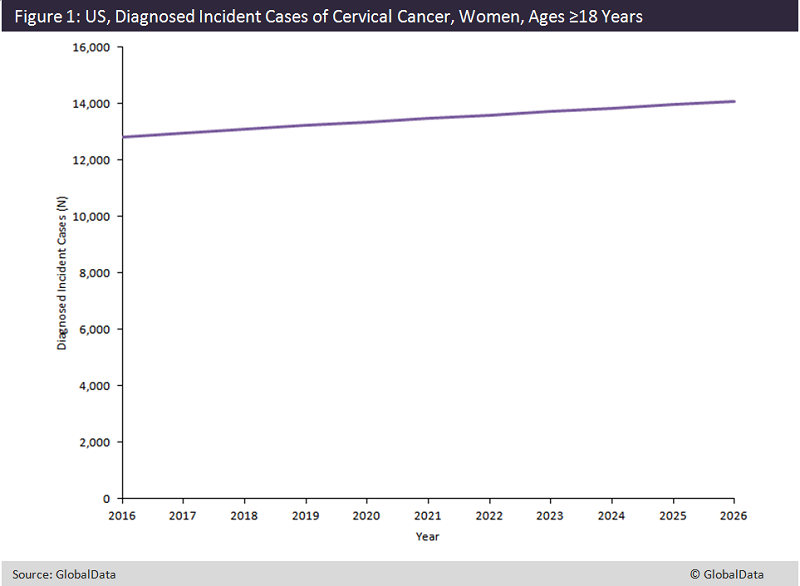Market insight in association with
Cervical cancer: epigenetic test could improve early detection
A new cervical cancer screening test shows promise in detecting all cases of cervical cancer. In a study of more than 15,000 women, the new screening test was shown to catch 100% of all cases of cervical cancer.
Figure 1 presents the number of new diagnosed cases of cervical cancer in women ages 18 years and older in the US in 2016, and estimated cases to 2026.

GlobalData experts estimate that there were more than 12,000 new cases of cervical cancer diagnosed in the US in 2016 and current forecasts are that this number will rise to more than 14,000 cases over the next 10 years. However, those estimates could grow if screening for cervical cancer improves and more cases are detected earlier on.
Cervical cancer in its earliest stages often presents with no symptoms and only in late stages starts to burden the individual. The new test detects epigenetic markers that indicate risk for cervical cancer and with a 100% detection rate is more sensitive than either a pap smear, with 25% of cases detected in the study, or the human papillomavirus (HPV) test, which detected only 50% of cases.
This more sensitive test could therefore detect the cancer at earlier stages, which can only improve the health outcomes for those with the disease. Additionally, with increasing rates of vaccination against HPV, women’s health will only continue to improve.
For more insight and data, visit the GlobalData Report Store.